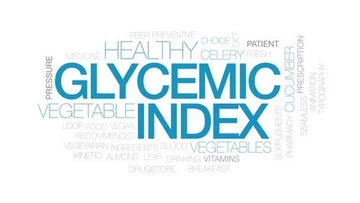A new study conducted by researchers from Stanford School of Medicine and published in The American Journal of Psychiatry suggests a potential link between insulin resistance and the development of depression. The study followed 601 participants aged 18 to 65, without depression or anxiety, from the Netherlands Study of Depression and Anxiety (NESDA) for a period of nine years.
The study aimed to achieve two objectives: firstly, to investigate whether insulin resistance, a condition where cells in the body do not respond effectively to insulin, resulting in difficulty absorbing glucose for energy, is associated with an increased risk of developing major depressive disorder within a nine-year timeframe. Secondly, the researchers sought to determine if the development of metabolic dysfunction during the initial two years of the study could predict the occurrence of depression in the subsequent seven years.
The participants underwent a psychiatric evaluation at the beginning of the study and were screened for major depressive disorder, anxiety disorders, and bipolar disorder at regular intervals during the follow-up period.
Three markers of insulin resistance were examined at the start of the study and again after two years:
- Triglyceride-to-high-density lipoprotein (HDL) cholesterol ratio, with a ratio indicating insulin resistance defined as ≥0.83 in women or ≥1.22 in men.
- High fasting plasma glucose level, with a level ≥99.7 mg/dL considered a marker of prediabetes.
- High waist circumference, with a measurement of 100 cm or more reflecting increased adiposity and serving as another surrogate measure of insulin resistance.
The results of the study indicated that individuals with any one of the three measures indicating insulin resistance at the beginning of the study were more likely to develop depression over the nine-year follow-up period. Specifically, for every one-unit increase in triglyceride-HDL ratio, there was an 89% higher likelihood of developing depression. Additionally, each additional 5cm increase in waist circumference was associated with an 11% higher rate of depression, and each additional 18 mg/dL of fasting glucose was linked to a 37% increased rate of developing depression.
The researchers also explored the relationship between newly developed insulin resistance during the first two years of the study and subsequent depression risk. They found that only elevated fasting glucose levels (prediabetes) led to a higher likelihood of depression compared to individuals with normal glucose levels. This suggests that the onset of prediabetes may predict the onset of depression within a few years.
Two potential physiological mechanisms were proposed to explain the connection between insulin resistance and depression. First, insulin resistance may trigger an inflammatory response in the brain, leading to depression. Second, there could be a link between insulin resistance and dysregulation of the hypothalamic-pituitary-adrenal axis (HPA-axis), the body's stress response system, which has been associated with depression.
Depression is a significant public health concern, affecting a considerable portion of the global population. Identifying and managing insulin resistance, a common condition preceding Type 2 diabetes, may help prevent or manage some cases of depression.
The findings of this study and others emphasize the potential predictive benefits of considering a person's metabolic status to assess their risk of developing depression, as well as informing potential prevention and treatment approaches. Identifying individuals with insulin resistance and providing targeted interventions may have implications for improving mental health outcomes.
Lead author Kathleen Watson, Ph.D., a Postdoctoral Researcher at the Department of Psychiatry and Behavioral Sciences, Stanford University, also expressed interest in exploring the concept of a metabolic subtype of depression, which could lead to personalized treatment approaches in the future.
The results of this study contribute to the growing body of knowledge on the relationship between metabolic health and mental well-being, offering new insights into the potential connections between insulin resistance and depression.





